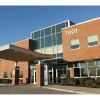What is Heart Bypass Surgery?
Heart bypass surgery, also known as coronary artery bypass grafting (CABG), is a procedure used to treat coronary artery disease. This disease occurs when the blood vessels that supply blood to the heart become narrow or blocked due to a build-up of fatty deposits, also known as plaque. Bypass surgery helps restore proper blood flow to the heart by creating new routes, or "bypasses," around the blocked arteries.

The Procedure: What to Expect
During heart bypass surgery, a surgeon takes a healthy blood vessel from another part of your body, such as the leg, chest, or arm, and attaches it to the coronary artery. This new vessel bypasses the blocked or narrowed section of the artery, allowing blood to flow freely to the heart. Typically, the surgery is performed under general anesthesia, and patients may require a hospital stay of several days.
Atlanta Heart Specialists
atlanta heart specialists
4375 Johns Creek Pkwy #350, Suwanee, GA 30024, USA

Why is Heart Bypass Surgery Needed?
Heart bypass surgery is often recommended for individuals suffering from severe coronary artery disease, especially when other treatments like medication or lifestyle changes haven't been effective. If blockages or narrowing in the arteries are preventing enough oxygen-rich blood from reaching the heart, bypass surgery can significantly improve heart function and reduce symptoms such as chest pain or shortness of breath.
How Does Heart Bypass Surgery Help with Heart Health?
By restoring blood flow to the heart, bypass surgery can reduce the risk of a heart attack and improve overall heart health. For many patients, it not only alleviates symptoms but also increases their ability to engage in physical activities without experiencing discomfort. Additionally, it can improve quality of life, allowing individuals to resume normal daily activities without the limitations caused by heart disease.
Recovery After Heart Bypass Surgery
Recovery from heart bypass surgery varies from person to person, but on average, it can take several weeks to a few months to fully recover. Initially, you may experience discomfort or pain in the chest and the areas where the surgeon took blood vessels. However, over time, most patients can return to their regular activities, including exercise, after completing a rehabilitation program designed to strengthen the heart and improve overall cardiovascular health.
It's essential to follow the doctor's instructions during recovery, including taking prescribed medications, attending follow-up appointments, and making lifestyle changes such as improving diet and incorporating regular physical activity into your routine. These changes can significantly contribute to maintaining a healthy heart and preventing future complications.
Success Rate and Long-Term Benefits
Heart bypass surgery has a high success rate, with many patients reporting significant improvement in their heart function and overall quality of life. While the surgery itself can effectively treat the current blockages, it’s essential to continue managing heart health through lifestyle changes, regular check-ups, and medication. By doing so, patients can reduce the risk of future heart problems and maintain the benefits of the surgery for many years.
Considerations and Risks
Like any major surgery, heart bypass surgery carries certain risks, such as infection, bleeding, and complications from anesthesia. However, these risks are generally low, and the benefits of the surgery often outweigh the potential drawbacks. Before deciding on heart bypass surgery, it’s important to have a detailed conversation with your doctor to ensure you fully understand the procedure and its potential outcomes.
In some cases, doctors may recommend alternative treatments, such as stenting or angioplasty, which are less invasive options. Your doctor will help determine the best treatment plan based on the severity of your condition and your overall health.
Heart Bypass Surgery: A Life-Saving Treatment
Heart bypass surgery remains one of the most effective treatments for coronary artery disease, offering significant relief from symptoms and improving heart function. If you or someone you know is facing heart disease, understanding the benefits and risks of heart bypass surgery is crucial in making an informed decision about treatment options.
At HeartCare Hub, we provide resources and information to help you better understand heart health and the treatments available. If you’re considering heart bypass surgery or want to learn more about heart disease management, our experts are here to guide you through every step of your journey.





















Deborah Heart and Lung Center
deborah heart and lung center
200 Trenton Rd, Browns Mills, NJ 08015, USA